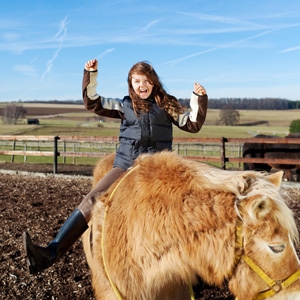
A Lincoln University study says multiple farm ownership is complicating succession planning, especially for dairy farmers
More than 40% of farmers own more than one farm, complicating their succession planning issues, a Lincoln University survey has found.
The survey of 800 farmers was carried out by Lincoln's senior lecturer in farm management Kevin Old, and senior research fellow Peter Nuthall, to gauge the current state of succession planning on New Zealand farms.
The researchers were surprised to find that although owning one farm was still the norm, with 58% of respondents reporting single farm ownership, the other 42% reported owning multiple farms, with some of them owning up to eight.
Multiple farm ownership was particularly common among dairy farmers, the survey found.
It also found differences in the way farmers intended to divide their assets among their children.
In many cases, farmers' children did not want to become farmers themselves but still expected a share of the family assets in due course , the researchers found.
Just under half (47%) of the respondents said they would divide their assets equally among their heirs, even if they had to sell the family farm to achieve that.
But the majority, (53%), said the distribution of assets would not be equal, with some farmers noting they would favour a particular heir if he or she was chosen to take over the farm.
However that was often done with an expectation that the chosen heir who took over the farm would compensate the other children in some way.
Some farmers reported they had off-farm investments which they intended to leave to those children not following in their farming footsteps.
Fifty eight per cent of the farmers surveyed said they intended to pass most of their assets to the next generation, but 27% said they intended to pass on less than half of their assets.
The survey also found that farmers appeared relatively reluctant to prepare a succession plan, with only 30% reporting that their net assets had been assigned to their heirs.
5 Comments
For some farmers its about economies of scale.
Its also common for a contiguous and vialbe farming unit to be made up of more than one Title Deed .
So this statistic is maybe not a surprise to many .
Seriously BM.
Dress it up how you like but when the cockies were in clover and had a chance to throw some cash at the pollution problem seems like all they did was buy another farm.
Multiple farm ownership was particularly common among dairy farmers, the survey found.
It is also about farming capital gains: there is often more money in that, in NZ, than in farming livestock.
Greg, could you please do a bit more research for your articles so you can get the horse before the cart, you're really filling peoples' heads with bovine manure.
The "Farmers who have multiple farms"....
Are the old time farms and corporations, several generations old from back when the farm cost $10,000 (for 40 acres) (vs the $400k for 40 sq m for auckland apartments now :) ) back when the whole extended family was conscripted to do the work, neighbours pitched in for hay harvest, and staff could be expected to do minimum 70 hr week, with no sick days or annual leave. things like effluent handling, feed pads, and safety legislation were unheard off.
They had their core holding back then, and have just been adding to it.
Usually at least one member of the family had a decent paying town job, and it was not uncommon for the sharemilker to be working there and his wife working in town (as clerk or school teacher) to help pay off the herd and build nest egg for farm purchase.
And they been doing that for 70 years.
So you're talking the few remaining farmers, who got in which cheap interest rates, with practically nil capital (in todays terms) and next to no overheads. Who have just stuck around picking up everyone elses' cast offs as the they bail from the costs or their families move away. But these mortgage free types have been sitting there, pocketing the rent money, frequently influencing policy, slowly backing their neighbours into the corners so they eventually fail.
Or some are big corporate/professionals who can gouge their customers with eyewatering fees without being charged for their overcharging (I notice a small ad in the Property Press is $250. wow. that's _really_ expensive acreage!) These guys can just waive off the expenses and write off losses via LTC/LAQC style vehicles, and then score on the capital gain... Easy laundry.
A curious article, given that non-natural persons (companies) have long since become the land-owners. But the research is from academics who have no skin in the game, so quelle surprise.
The point of having several farms (particularly in dairy, but applies equally to cropping) is perfectly simple. It gives land management options: differing blocks will have different soil types, slopes. altitudes, crop/grass cover, GDD's, rainfall/irrigation characteristics, proximity to monitored waterways or red-zoned catchments, etc. So having a nutrient emission spike down in a creek bottom can be easily managed by moving stock upcountry or over the hill. That's in contrast to the smaller single/contiguous unit, where that sort of option may be much more limited or even non-existent.
And 'inheritance' where a company is concerned is a matter of shareholdings: the entity itself never dies unless the owners or the Registrar roll out La Guillotine.
Curious phrasing all around.

We welcome your comments below. If you are not already registered, please register to comment
Remember we welcome robust, respectful and insightful debate. We don't welcome abusive or defamatory comments and will de-register those repeatedly making such comments. Our current comment policy is here.